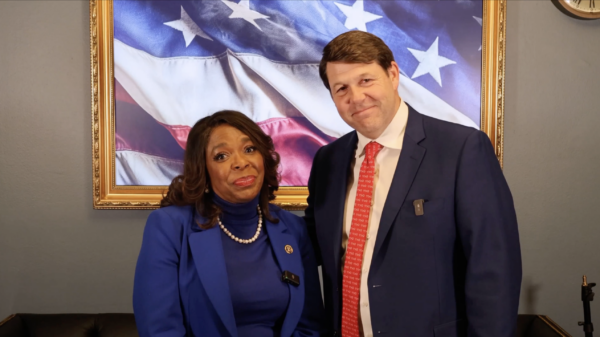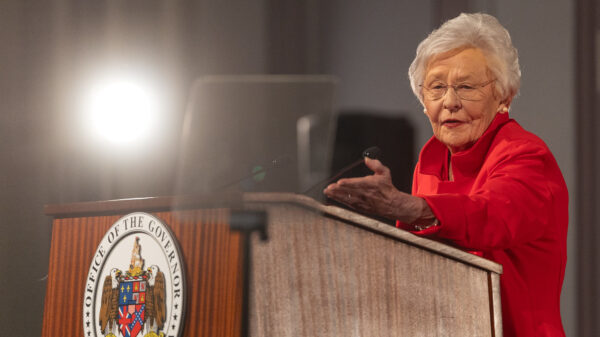By Bill Britt
Alabama Political Reporter
MONTGOMERY—Recently, the Alabama Political Reporter sat with Public Service Commissioner (PSC), Chris “Chip” Beeker and his attorney, James Anderson, at the Offices of Copeland Franco to review documents and recollections regarding a solar option to a lease offered to the commissioner.
Controversy grew around the proposed land lease after media reports revealed the potential conflict, because PSC regulates utility companies.
In February of this year, Beeker received a letter from Coronal Development Services about leasing some of his pasture land for a possible solar energy farm.
Virginia-based Coronal Development Service develops utility-scale solar projects. Its renewable energy sites span from Boston to Pitt County, North Carolina and beyond.
According to the correspondence provided to APR by Beeker, on February 19, 2016, Coronal Project Developer Ryan Gilchrist contacted him to discuss leasing his land as a site for a future solar farm.
Beeker recalls the letter came out of the blue, and he was surprised by its arrival.
Coronal’s Project Developer wrote, “Our real estate search takes into account a variety of layers including proximity to utility infrastructure, topography, floodplains and wetlands. Based on all of these criteria, we have identified 450 acres of your land across 2 land parcels in Greene County, Alabama, that appear to have all of the traits necessary to site a successful solar development.”
Beeker’s description of property he owns perfectly fits Coronal’s criteria. Some weeks later, Beeker met with Gilchrist and his team for a tour of the property followed by an offer to option some 450 acres for a lease that would provide Beeker $225,500 a year or $5.6 million over the life of the 25-year lease.
Beeker and his attorney, Anderson, were both quick in pointing out that the contract with Coronal was an “option to lease” not a “done deal.” The lease agreement execution depended on several factors which included an agreement with Alabama Power.
Beeker said he was excited to turn a profit from the pasture land, but understood the potential for issues due to him serving on the PSC. Wanting to understand the right course of action, he said he spoke with PSC Executive Director and Administrative Law Judge John Garner. Subsequently, Garner dispatched a letter to the Ethics Commission General Counsel, Hugh Evans, asking for guidance by way of informal opinion on whether a PSC Commissioner could proceed with a option to lease with a solar energy provider, without violating the State’s ethics laws.
After several email exchanges in which Beeker answered questions put forward by the Ethics Commission Executive Director Tom Albritton, Beeker was informed his request for an informal opinion was denied.
Following the request for an informal opinion Beeker took his case to the Ethics Commission.
The matter was recently settled when the full Ethics Commission voted 3-to-2 finding the lease would constitute a conflict of interest due to Beeker’s regulatory position on PSC.
In Coronal Development Services’ initial letter to Beeker, the company stated “Alabama Power has committed to contracting for multiple long-term power purchase agreements from multiple utility-scale solar projects on a rolling basis during the years 2017-2020.” This one sentence led to speculation about who knew what and when did they know it?
APR contacted Alabama Power for answers to those questions.
Alabama Power Public Relation’s Chief Michael Sznajderman informed APR that the company learned of the possible contract through press reports. He also said the company hadn’t spoken to Coronal about an agreement between the two entities before the controversy or since Beeker’s offer.
While disappointed, Beeker said the matter is closed and is putting the whole episode behind him.
However, tensions over the contract boiled over between PSC commissioners during the mid-September meeting: “The contentious exchanges between the three commissioners, all Republicans, came at the end of today’s monthly PSC meeting,” reported al.com’s Mike Cason on September 13.
The latest eruption is a continuance of hostilities over a letter PSC President Twinkle Andress Cavanaugh sent to Ethics Director Albritton. In her correspondence, Cavanaugh raises many of the same concerns considered by the commission in its denying Beeker’s formal opinion to proceed with the land lease.
Cavanaugh points to a September 1, 2015, Commission vote approving a Renewable Generation Certificate for Alabama Power for a 500 megawatt authority for new renewable power over the next 6 years. This authorization allows the power company to obtain competitive bids for renewable energy. Such a vote would be improper, she concludes, for a sitting commissioner.
She also stated, “Commission plays an integral role with Alabama Power in the development of the specifics of the RFP and oversees the evaluation process of the bids received.”
Cavanaugh further observes commissioners have access to the highly confidential and proprietary analysis of future avoided costs supplied by Alabama Power Company.
She continues, “The mere existence of a connection between a Commissioner and a project could place an unnecessary burden on the staff to recommend approval or a project to please a Commissioner.” The Ethics Commission, in its findings, agreed with Cavanaugh.
At the last PSC meeting, Cavanaugh believes Beeker and Commissioner Jeremy Oden passed punitive administrative rules because of her letter to Albritton.
The Ethics Commission has ruled against the land lease deal, Beeker says he’s moving on but tension at PSC remains.
















































